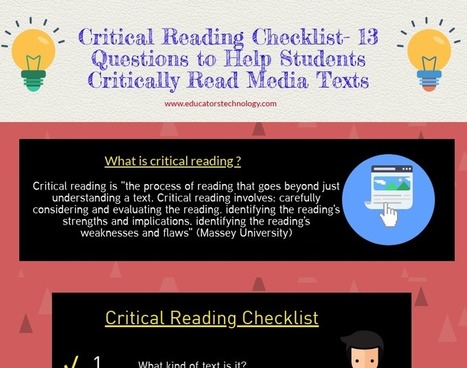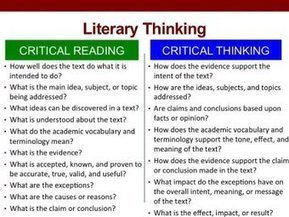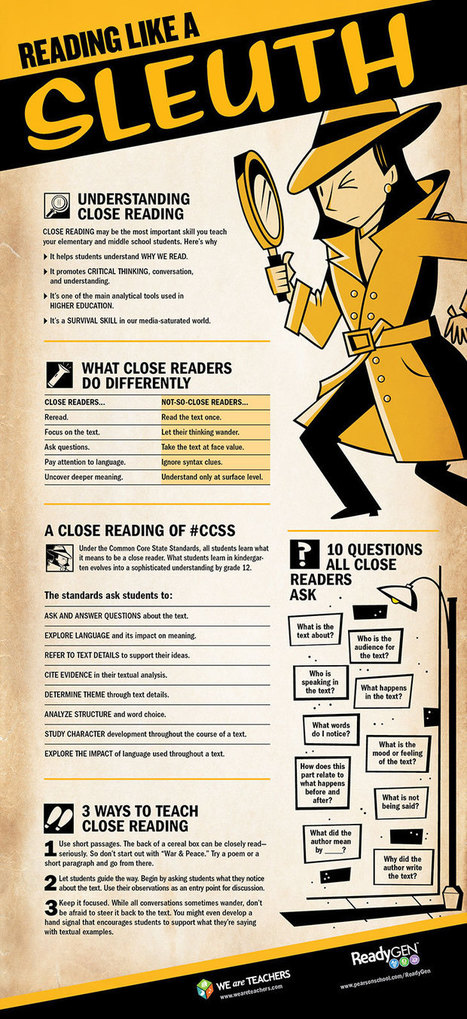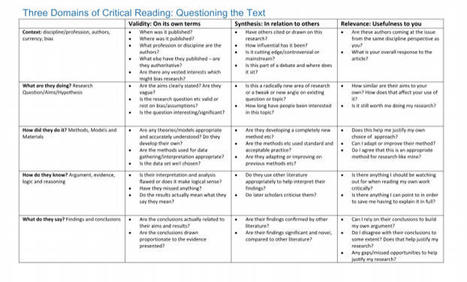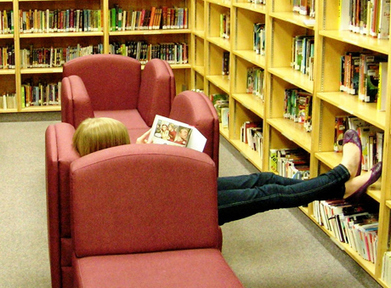As teachers and educators it behoves us to raise our students critical awareness to this informational dilemma. We need to make sure they are equipped with the required skills to help them navigate and browse the web in a safe and productive way. One way to do this is through enhancing their critical digital search literacy. We have already covered a number of interesting materials in this regard and you can check this resource to discover some practical search tips to share with your students.
Research and publish the best content.
Get Started for FREE
Sign up with Facebook Sign up with X
I don't have a Facebook or a X account
Already have an account: Login
Literacy in a digital education world and peripheral issues.
Curated by
Elizabeth E Charles
 Your new post is loading... Your new post is loading...
 Your new post is loading... Your new post is loading...

Emma Greengrass's curator insight,
January 27, 2014 4:44 AM
Close reading is an essential part of developing critical thinking skills for students at all levels.... |
|




